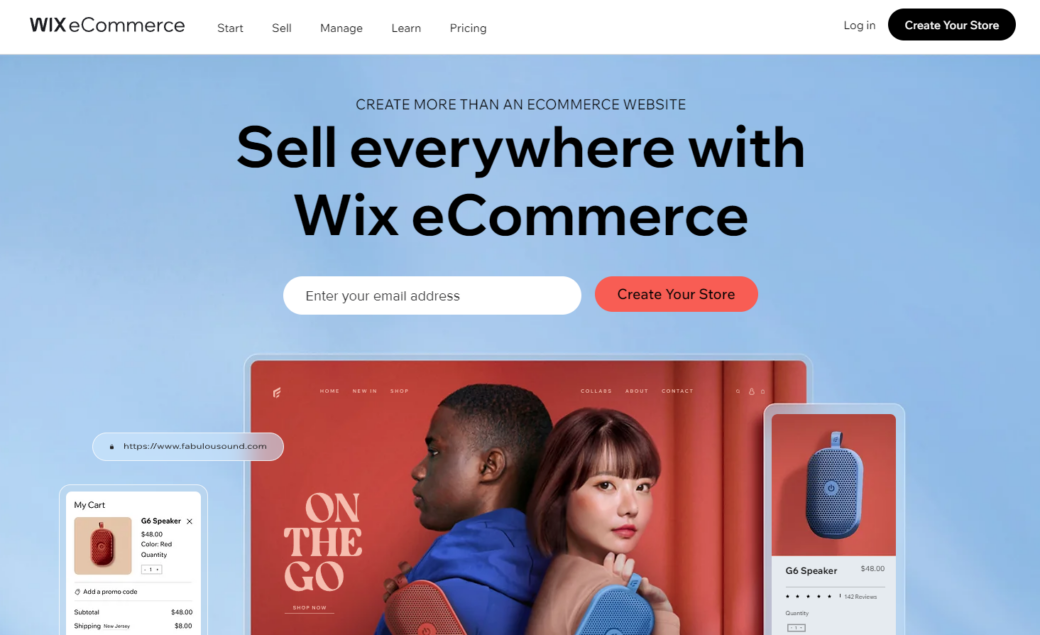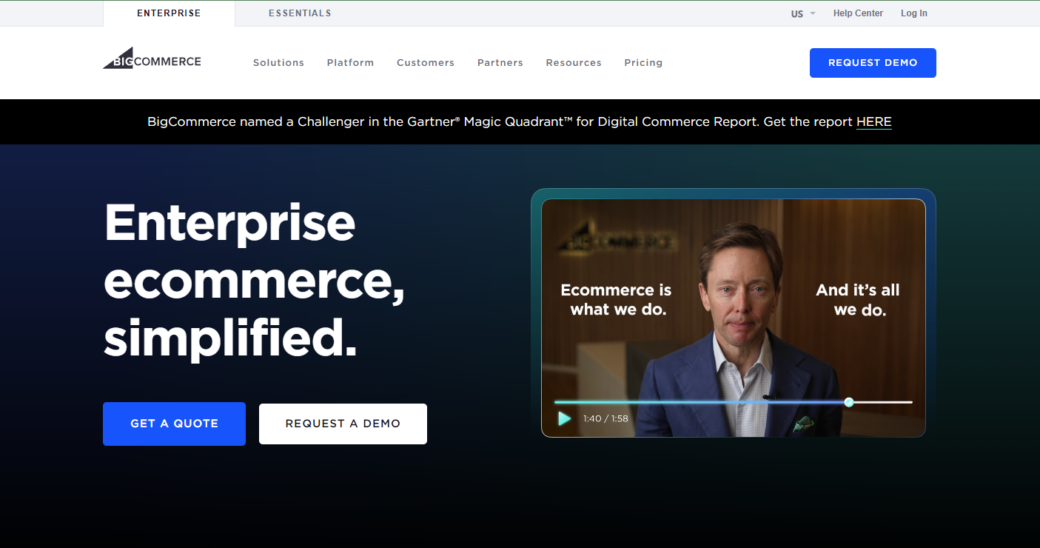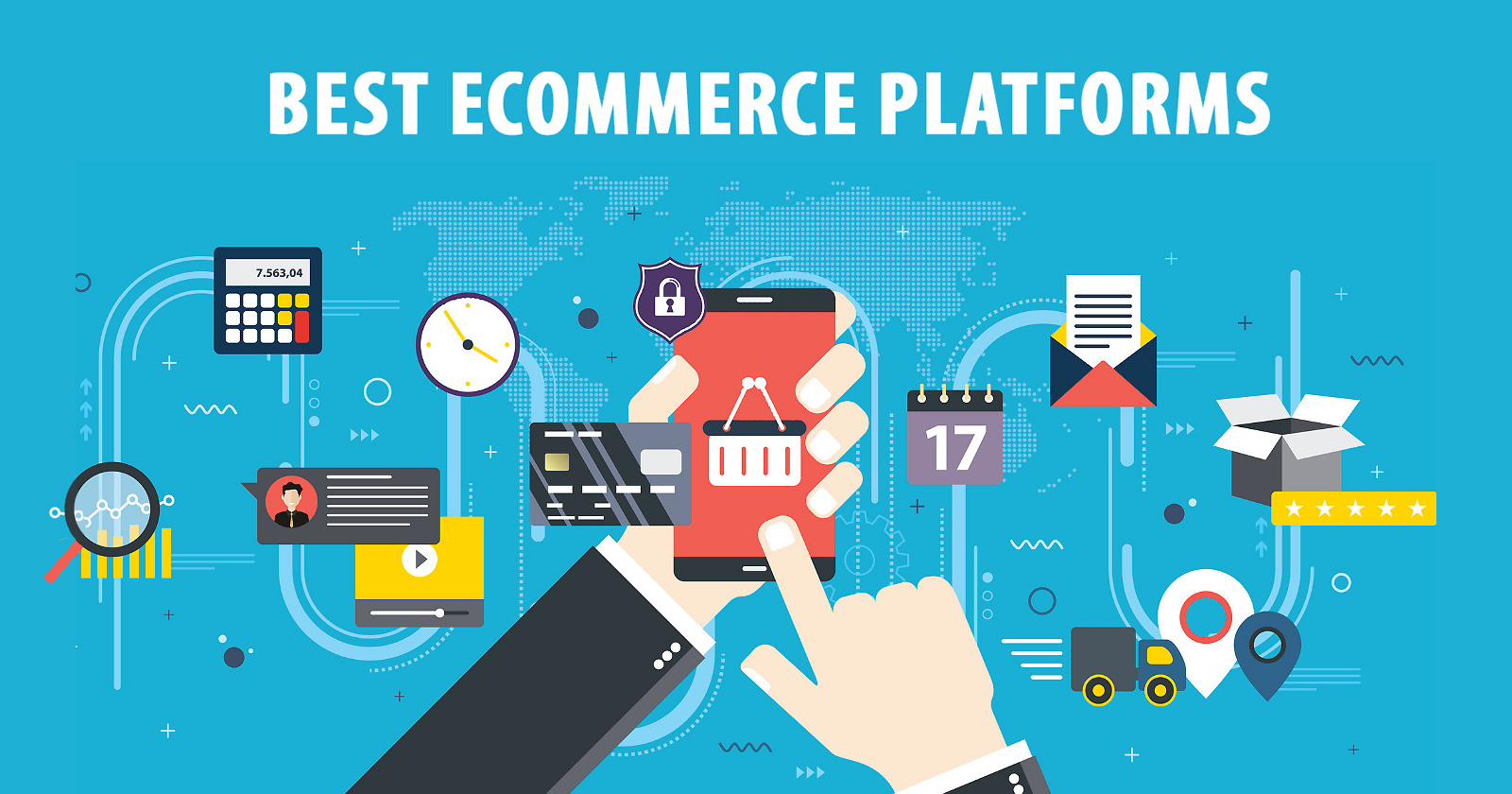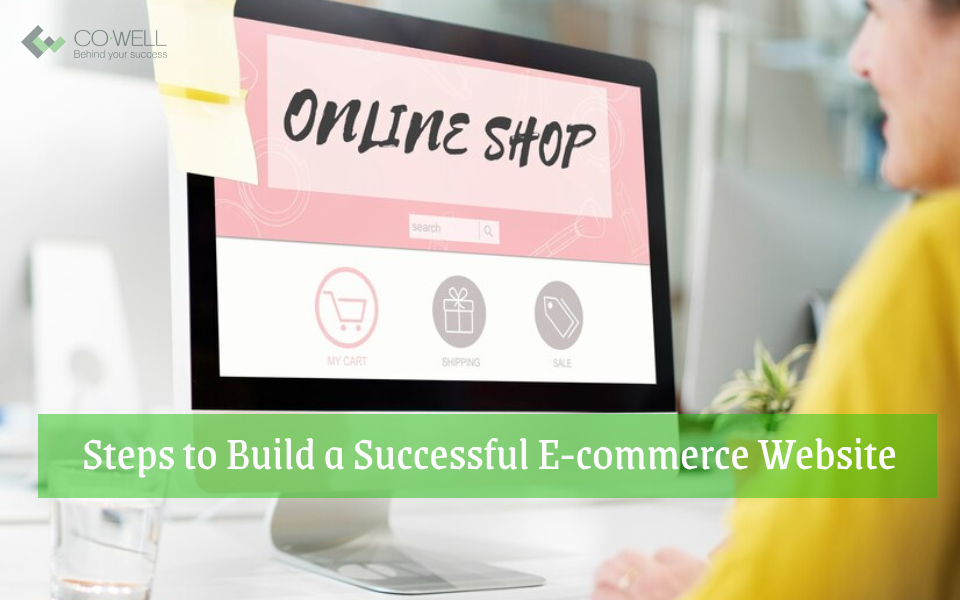Table of Contents
Overview
As a merchant looking to move your business online, one of the biggest decisions you’ll make is choosing the best E-commerce Platform that will ensure scalable, long-term growth. It can help broaden your target market, increase business discoverability, and boost revenue.
Over the past several years, e-commerce has transformed how people buy and sell online. E-commerce also facilitates the purchase of digital media such as downloadable music and movies: with no physical product, vendors can boast truly instant delivery. With many E-commerce Platforms available, deciding which one to use to create your online store may require significant time and effort.
What is the best E-commerce platform?
An E-commerce Platform is a software application that allows online businesses to manage their website, marketing, sales, and operations. This article explores some top E-commerce Platforms to help you build an online store which suitable for your business.
For each E-commerce Platform, we will provide brief overviews, their key features, pricing plans, pros and cons, and our verdict.
Let’s go into detail!
Open Source E-commerce Platform to build online stores
MAGENTO (by Adobe Commerce)

Magento is a popular open-source eCommerce platform that provides businesses with a powerful and customizable framework to create and manage their dream online stores. It is known for its flexibility, scalability, and security.
Magento eCommerce has gained significant fame and recognition in the eCommerce industry.
It is known for its extensive feature set, scalability, and ability to handle complex online stores.
Any business can use Magento, from small startups to global brands. Trusted by Nike, Samsung, and The Coca-Cola Company, Magento offers the power and flexibility businesses need to succeed online.
PROS
- Users get free Abode Suite
- Can manage thousands of products
- Ideal for large enterprises with complex customization needs and ample budgets
- High customization and scalability
- Diverse and advanced built-in features compared to SaaS platforms
- No sales volume limitations
- Wide range of available extensions
- Trusted by brands like Nike and Samsung
CONS
- Requires a high level of technical expertise
- Lengthy deployment times
- It might be demanding on server resources, potentially leading to slow performance if not properly optimized.
- Frequent updates are necessary for security and functionality, which can be time-consuming.
Well-suited:
Businesses that include medium to large e-commerce stores, b2c or b2b businesses, multi-store retailers, niche and specialty retailers, or customization-driven businesses.
You can try to explore our ready-made Demo online stores for Fashion and Electronics and inspire for your store.
WOOCOMMERCE (built on WordPress)

WooCommerce is a flexible, open-source commerce solution built on WordPress. The company started in 2008 as WooThemes and in 2017 decided to focus exclusively on e-commerce.
By pivoting from commercial themes to e-commerce, Woo quickly became the fastest-growing e-commerce platform on the internet.
This open-source platform empowers businesses of all sizes to effortlessly transform their WordPress websites into feature-rich online shops.
PROS
- Can be used to sell a wide variety of products and be customized to suit your specific needs.
- Open-source and free to use, with lower hosting and maintenance costs than other e-commerce platforms
- It has a large community of users and developers who can help you with any issues you may encounter
- Wide range of plugins and themes, it has a wide range of plugins and themes available to add new features and functionality to your shop
- Easy to use and customize, user-friendly interface and customizable options
CONS
- Some businesses may need more advanced features and functionality unavailable on the platform.
- As it is open-source, the company doesn’t provide customer support.
- It shares the same security risks as the WordPress platform; businesses need to take extra steps to secure their websites.
- You may need to pay for other plugins, themes, and customization work.
Well-suited:
Users have WordPress sites, small to medium-sized retailers,, content-driven stores, subscription box services, and dropshipping businesses.
Best Hosted E-commerce Services to build online stores
SHOPIFY

Shopify is a popular hosted e-commerce platform. Their user-friendly administration interface gives store owners the ability to manage their product inventory and customize their online store without knowing how to code.
Shopify has a strong market presence in the e-commerce space, and in 2014, they launched Shopify Plus as their solution for enterprise clients.
The pricing starts at $14/month for the Starter plan, but you will quickly outgrow this plan if you’re serious about selling online. The next plan, called Basic, is more practical: It’s $29/month and gives you 1 GB of storage, an unlimited number of products in your online store, and a 2.0% transaction fee.
As a SaaS solution, the Shopify platform offers the benefits of handling PCI compliance and security and solid uptime stats. The platform is easy to use, has mobile-friendly designs, and has a customizable checkout.
PROS
- Shopify is a leader in the market with significant experience, hosting over a million stores globally.
- They have more than 4,100 integrated apps to help you add additional features and functionality to your online store.
- Over 70 available professional and responsive themes to design your website.
- Straightforward to set up and use, making it accessible to both beginners and experienced users.
- Shopify offers a wide range of customizable themes and a user-friendly drag-and-drop editor.
- They provide vast plugins and integrations to extend functionality
CONS
- Built for smaller catalogs, with a 100 SKUs per product cap.
- Lack of scalability, with a built-in 3-option limit per product.
- Charges a monthly subscription fee, which can add up over time.
- More additional transaction fees apply if you don’t use Shopify Payments for payment processing.
- Limited customization for product and content pages
WIX

Wix is a website builder and e-commerce platform used by both entrepreneurs and small business creatives. Its user-friendly drag-and-drop tools and over 500+ ready-made templates help you build your website without either having specialist skills or hiring a web developer.
PROS
- Wix provides a fairly large app marketplace, with more than 300 applications.
- They have a lot of extensive, modern design templates.
- All Wix websites are hosted on their own servers, allowing for greater speed and security.
- Users can drag-and-drop website builder is straightforward, making it accessible for beginners.
- Wix offers various visually appealing and customizable templates for different industries and purposes. It also generates mobile-friendly versions of your site.
- They provide vast plugins and integrations to extend functionality
CONS
- Wix is a limited support system.
- It doesn’t support merchants selling products in bulk/wholesale.
- Operates as a website builder first and an e-commerce solution second, leaving merchants with restrictions on storage, API call limits
- Wix may provide less flexibility than other website builders for advanced users.
- Transferring your site from Wix can be challenging due to its proprietary technology.
Well-suited:
For individuals, small businesses, and those needing a visually appealing website.
BIGCOMMERCE

BigCommerce, like Shopify, offers a variety of templates and themes to help stores look their best while also getting up and running quickly. Users can also design their own stores or hire BigCommerce designers to do so.
They boast a comprehensive suite of tools from marketing to analytics, high-caliber design options, and plenty of support from industry pros. It’s considered a leading open SaaS e-commerce platform for companies of all sizes, and many small businesses can benefit from what BigCommerce offers.
PROS
- Suitable for both small & big stores
- No transaction fees on BigCommerce
- BigCommerce offers many built-in features, including marketing tools, SEO capabilities, and inventory management.
- Great with multi-channel selling
CONS
- Annual sales threshold and pricing plans can be relatively high compared to other e-commerce platforms.
- No email marketing tools
- Lacks subscription options
- Inconsistent loading speed
- Migrating away from BigCommerce can be complex because data is stored on their servers.
Well-suited:
For mid-sized to large retailers, multi-channel retailers, subscription-based services.
What is the distinction between an Open source E-commerce platform and a Hosted E-commerce service?
An eCommerce platform provides the tools for you to create an appealing page or series of pages for customers to visit and learn more about you, but that website must be hosted somewhere, which is what an eCommerce website host does. Websites are hosted on platforms that can handle the traffic that is directed at them.
And what about you? Which one do you prefer? Feel free to TALK WITH US and discover more about the E-commerce platform via our tailored Website Development Services or Others Development Services, uniquely crafted to propel your business to greater heights.









